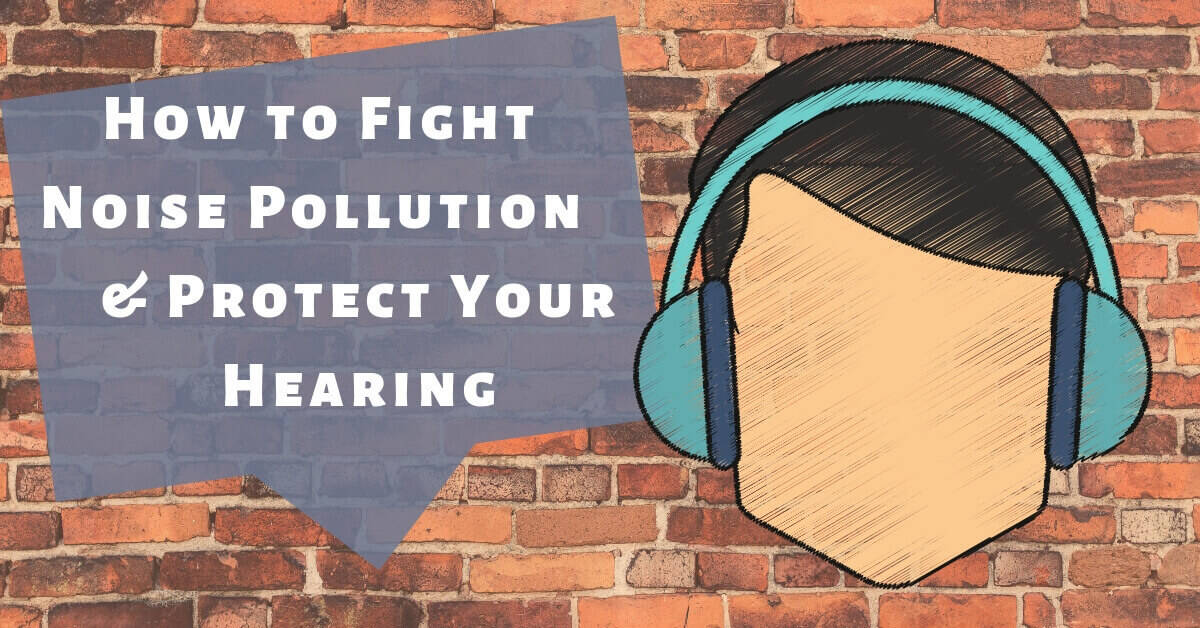
Have you been worrying about how loud your neighborhood is getting these days? Do you worry about your hearing, or think your children might be suffering from all the noise? Noise pollution is becoming a major issue in cities across the country, and whether at work, at home, at school, at the gym, or stuck in traffic, we’re constantly surrounded by excessively loud sounds.
What is Noise Pollution?
Millions of Americans are living in environments with excessive noise that could be damaging their hearing health. In fact, recent studies show that rates of noise pollution are on the rise, and even the everyday noises you’ve learned to tune out could be damaging your hearing health or risking your children’s hearing. Noise pollution is the excessive or dangerously loud background noise that surrounds us, which affects the natural balance of sounds, and creates an unpleasant environment. In areas with a lot of noise pollution it’s far harder to concentrate on tasks, and people are more likely to be irritable, upset, or overwhelmed. Noise pollution can also lead to moodiness, difficulty with critical thinking, insomnia, tinnitus, and hearing loss.
Noise pollution has become a major threat to our health, and the World Health Organization warns that something needs to be done before all this noise leads to a rapid rise in hearing loss, and as cities continue to grow, it’s important we find ways to fight noise pollution and protect our hearing health.
Coping with Noise Pollution
Many people pup in earbuds or headphones to cope with noise pollution, and play their own music rather than listen to all the annoying background sounds that so often flood our environment. While playing music with earbuds will reduce your exposure to noise pollution, it opens you up to another danger, the risk of noise induced hearing loss from unsafe listening practices.
Unsafe listening practices, like cranking up the volume on your personal listening device to drown out background sound, or blasting the TV or radio, can lead to permanent hearing loss. When sounds around us are very loud, we usually respond by turning up the volume even more, and playing dangerously loud sounds right into our ears, damaging the delicate cells of the inner ear. We’re also more plugged in now than ever before, and spend far too many hours every day listening to music with headphones.
To listen safely, experts recommend following the 60/60 rule. Only listen at 60% of the maximum volume, and take a break after 60 minutes to give your ears a break. This way you can listen safety, and enjoy a break from noise pollution without having to risk your hearing health.
Noise Cancelling Technology
One great way to fight noise pollution and protect your hearing is with noise cancelling headphones. These devices actually emit anti-noise signals that match the noise in the environment, effectively cancelling out the noise pollution. You’ll be able to listen to your music or your favorite podcast without having to turn up the volume or damage your ears. In this quiet listening environment, you’ll have no difficulty enjoying all the subtleties of the music.
It’s possible that noise cancelling technology will soon be used a lot more widely, and you might see noise cancelling devices in offices and homes. For example, a device could measure the noise levels in your home or office, and since electrical signals travel faster than sound signals, it could transmit noise cancelling sounds to an earpiece in your ear. These signals would reach your ears before the sound, and noise pollution could be eliminated before it even has a chance to reach you. With noise cancelling technology, you can enjoy a quiet space to get your work done, or spend quality time with your loved ones.
My Hearing Centers
If you’re worried about noise pollution in your neighborhood, or think someone in your family might have hearing loss, visit us today for a hearing evaluation. We’ll find out if your hearing has been affected, and suggest ways you can reduce the noise pollution in your life. If you have hearing loss, we’ll help you find the perfect hearing device that will let you hear in background and in noise, and get back to doing the things you love.
